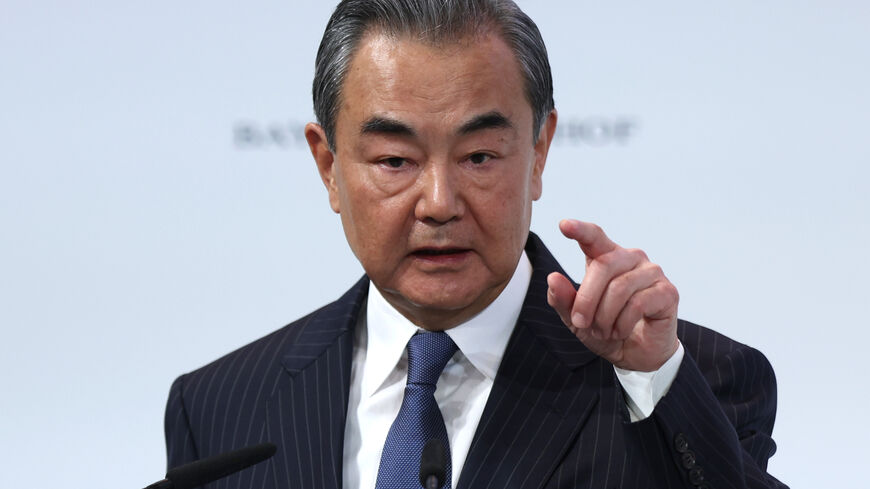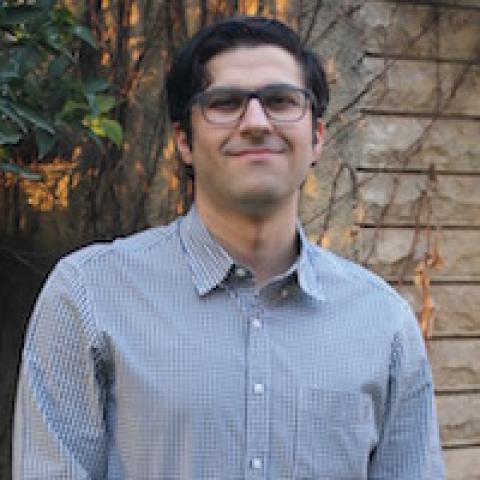The deal between Saudi Arabia and Iran last week to reestablish relations brought China and its top diplomat, Wang Yi, to the center stage of Middle Eastern politics. A savvy statesman, the 69-year-old has worked behind the scenes in the region for decades to secure Beijing's political and economic interests.
Wang, who heads the Central Foreign Affairs Commission for the Chinese Communist Party, negotiated the Saudi-Iran deal with Saudi national security adviser Musaad Al-Aiban and his Iranian counterpart, Ali Shamkhani.
Wang is considered one of China's most seasoned diplomats, and has built relations with successive foreign ministers in Saudi Arabia, Iran and other countries across the region.
Modest Background
Wang was born in Beijing and hails from a modest background. He studied at the Beijing International Studies University — a feeder school for the foreign ministry. He learned both English and Japanese and married into the foreign policy establishment. Wang's wife, Qian Wei, is the daughter of Qian Jiadong — China's former ambassador to the United Nations, journalist Peter Martin wrote in his 2021 book, "China’s Civilian Army,"
Wang began his diplomatic career in 1982 and served in a variety of positions before becoming vice minister of the Foreign Ministry in 2001. In 2004, Wang became ambassador to Japan. He left that position in 2008 when he was appointed director of the State Council’s Taiwan Affairs Office, according to the US-China Business Council.
Wang served as foreign minister from 2013 until last December, and took his current position atop the Central Foreign Affairs Commission in January. Chinese President Xi Jinping also came to power in 2013, and Wang was tasked with carrying out his ambitious foreign policy, according to Martin.
Xi established the Central Foreign Affairs Commission in 2018 as part of a government reshuffle, and Wang may have relatively more influence at its head than he did as foreign minister. The body serves as the central institution guiding China's foreign policy. One reason Xi created the commission was to increase the Communist Party's influence over foreign policy matters, according to Asia-focused magazine The Diplomat.
Wang was also a visiting scholar at Georgetown University in 1997.
An eye on the Middle East
China’s influence in the Middle East grew significantly during Wang’s tenure as foreign minister, including with countries that have traditionally aligned themselves with the United States. Several countries joined the Belt and Road infrastructure initiative following its launch in 2013, including Turkey and Saudi Arabia. China also boosted its trade ties with Egypt, Gulf states and others. In 2021, a Chinese firm opened a new port in Haifa, Israel, despite US opposition.
Wang was heavily involved in China’s Middle East policy as foreign minister. In 2014, he put forward a four-point proposal for solving the Israeli-Palestinian conflict. In 2021, he offered to host Israeli and Palestinian officials for peace talks.
استقبل الأمير #سعود_الفيصل اليوم, وزير الخارجية الصيني وانغ يي, وجرى خلال اللقاء بحث العلاقات الثنائية وسبل تطويرها. pic.twitter.com/Nv89J0Gxp8
— وزارة الخارجية 🇸🇦 (@KSAMOFA) December 25, 2013
Wang may have been instrumental in building support in the Middle East for China’s controversial camps of the Uyghur Muslims in the Xinjiang region. The internments have been widely criticized by foreign governments and rights groups. Last August, the United Nations noted a "large-scale arbitrary detention" in the region.
Many Muslim-majority countries, including Saudi Arabia, however, have shied away from criticizing Beijing on the issue. In 2019, Saudi Arabia joined the United Arab Emirates, Iran and dozens of other countries in signing a letter backing China on the Uyghur issue. This followed Wang telling the world in 2018 to ignore “gossip” about Xinjiang.
Wang is also known for doing shuttle diplomacy in the Middle East and balancing relations between ardent rivals such as Saudi Arabia and Iran. In 2021, Wang visited Saudi Arabia, Turkey, Iran, the United Arab Emirates, Oman and Bahrain in the span of a week.
The visit helped cement China's relations to the Gulf. In Saudi Arabia, Wang unveiled his "Five-Point Initiative" on security and stability in the Middle East. The initiative touched on the Israeli-Palestinian conflict, Iran's nuclear program, reconstruction, vaccine cooperation and more. None of this was new, but Wang sought to "portray Beijing as a responsible great power that understands key local issues," according to a report from the Washington Institute for Near East Affairs at the time.
Wang also hosted Saudi Foreign Minister Prince Faisal bin Farhan Al Saud in China in January of last year. Two months later, Saudi Aramco and China finalized their long-discussed deal to build a refinery in northeast China. Relations may have peaked when Xi visited Saudi Arabia last December, leading to more than 40 deals between the two countries.
The conflict in Afghanistan helped Wang improve China's relations with Qatar. In March of 2022, he met with Qatari Foreign Minister Sheikh Mohammed bin Abdulrahman Al Thani in China during a conference on Afghanistan. Thani "spoke highly of China's important role on the Afghan issue," the Chinese Foreign Ministry said in a statement. Wang criticized the US withdrawal from Afghanistan in 2021, calling it "hurried." Qatar hosted peace talks between the US and the Taliban government.
Thani also expressed his support for the "one-China policy" at the time — a reference to Taiwan. Other countries in the region have also backed China on the Taiwan issue. Last August, Iran and Syria declared their support for the one-China policy after US speaker of the House Nancy Pelosi visited Taiwan.
Wang also held talks and calls with his counterparts from the UAE, Iran, Turkey, Israel and the Palestinian Authority, among others, last year in his final months as foreign minister.
A rising power
Some analysts see China’s rise in the Middle East as part of a great powers competition with the US. As foreign minister, Wang sometimes sought to strike a conciliatory tone towards the US, however.
“We hope that the United States will work with China to explore a new path of peaceful coexistence and mutually beneficial cooperation,” Wang told the Council on Foreign Relations in 2021. “The key is whether the United States can accept the peaceful rise of a major country with a different social system, history, and culture and in a different development stage.”
More recently, Wang has been working on the Ukraine war, and is floating an upcoming peace proposal. The diplomat has openly criticized the US in the process. At a conference in Germany last month, he said “some forces might not want to see peace talks to materialize” — an apparent reference to the US, Politico reported, describing the minister as seeking to drive a wedge between the US and Europe.







